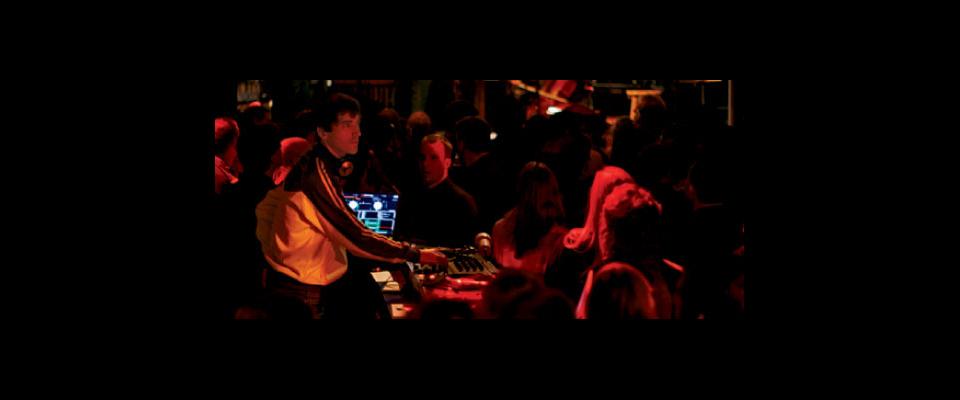Jake Heggie and Frederica von Stade discuss their musical and personal collaboration.
Outside of Zellerbach Hall, the oak trees lining Strawberry Creek sway in a gentle late-summer breeze. But the dazzling weather outside can’t compete with the glow suffusing Zellerbach’s rehearsal room, where Frederica von Stade and Jake Heggie take turns describing how their lives and careers have intertwined inextricably over the past 25 years. More than a mutual admiration society, the beloved mezzo-soprano and the sublimely gifted composer who catapulted to fame in 2000 with the opera Dead Man Walking, have formed an extraordinary creative alliance, a musical love affair marked by a series of revelatory songs and roles.
“The voice is an imperfect instrument,” says von Stade, 63, the long-time Bay Area resident affectionately known as “Flicka” to friends and acquaintances. “Sometimes those reeds come together, sometimes not. Fatigue, babies, age—all those things affect the voice. And Jake loves it. He’s able to decipher musically what are the strong points and what are the weak points of all the voices he works with. I think that’s pretty amazing. It takes a passion for singing.”
A breathtaking array of singers has responded to Heggie’s passion for the human voice and championed his work, including Susan Graham, Audra McDonald, Patti LuPone, Isabel Bayrakdarian, and Zheng Cao. As a pianist, Heggie has accompanied an equally glittering roster: Dawn Upshaw, Lorraine Hunt-Lieberson, Paul Groves, Thomas Hampson, and many others. But in the beginning there was von Stade. Heggie first heard her perform in Los Angeles in the early 1980s when he was an aspiring composer studying at UCLA. Though they didn’t actually work together for more than a decade, her sound became the beacon guiding the lyricism that has made Heggie’s songs among the most performed in the contemporary vocal canon.
“What I responded to is the immediacy and the connectedness of Flicka’s voice,” says Heggie, 47. “There’s never anything false or phony or put on. It’s genuine. There’s this beautiful quality of sound that penetrates through your heart and soul and speaks truth. There’s an honest connection to every single phrase and word…. And like everyone who’s a fan, I’m just drawn into her world of expression and truth and honesty and self-deprecation; laughter and tragedy.
Their latest collaboration, the chamber opera Three Decembers, will make its West Coast debut on December 11–14 at Zellerbach Hall and draws on von Stade’s entire emotional range. Commissioned by Houston Grand Opera, San Francisco Opera, and Cal Performances, the piece premiered last February in Houston under the name Last Acts. The family drama features von Stade as Broadway diva Madeline Mitchell, and Keith Phares and Kristin Clayton as her son and daughter, Charlie and Bea. Three Decembers grew out of the brief Terrence McNally play Some Christmas Letters, which was performed only once, for an AIDS benefit in New York, and starred Julie Harris in the role of the mother.
Heggie had spent years in search of a perfect role for von Stade when he prevailed upon McNally, the librettist on Dead Man Walking, for a copy of Some Christmas Letters. Deeply moved by the play, he passed it on to von Stade, who immediately agreed to participate in the project. Gene Scheer wrote the libretto, the latest piece in his recent burst of collaboration with Heggie that includes the song cycles “Statuesque,” “Rise and Fall,” and “Friendly Persuasions,” and the opera To Hell and Back.
“When I read this Julie Harris part there was only one person in the world I thought was right for the role,” Heggie says. “In Dead Man Walking she went on in her Keds and her jeans and no makeup and broke everyone’s heart. I felt that I owed her a glamour role, to go from the Keds and jeans to the Valentino and Oscar de la Renta gowns and costumes of a stage actress.”
“The Keds being more authentic, as you might gather,” adds the casually attired singer.
“I think people are interested in those theater stories,” Heggie says. “It’s something very close to our lives so we can write from a perspective of truth about it.”
For von Stade, Heggie’s music has provided a deep and welcome wellspring of emotional truth. In developing the character of Madeline, she increasingly found resonances in her own life. At first, she reflected on her relationship with her two daughters, but as she and Heggie delved into the production, von Stade caught a glimpse of her own life span as a stage artist and the tough shell she has needed in order to maintain her art and career at such a high level.
“There is a natural transition when, honey, the time has come, the Walrus said, that we do not need to hear Cherubino sung by a 65-year-old woman,” von Stade says. “And I realized, which I never could admit before, what a hard edge there is to me as a performer, and how much of a front I’ve had to maintain in my work. It’s been amazing to explore that through Madeline. There’s a lot of forgiveness at the end of this piece, and I’m very grateful to Jake for that.”
If Heggie has provided von Stade with a vehicle for coming to terms with the eventual conclusion of her career as a performer, von Stade’s generosity enabled him to reclaim his identity as an artist. After a debilitating hand injury short-circuited his budding career as a composer and accompanist in Los Angeles, he decided to start a new life in San Francisco. Still besotted with music, he landed a job in 1994 as publicist for the San Francisco Opera, where von Stade soon starred in Conrad Susa’s opera The Dangerous Liaisons. The experience of watching von Stade daily in rehearsals inspired Heggie to write again after five fallow years. On opening night he presented her with “Three Folk Songs,” his audaciously original settings of traditional pieces that made glorious use of her burnished lower register.
“There was surprise on her face—and a pinch of terror,” Heggie says with a chuckle. “‘Oh dear!’ she said, ‘What are these?’ I said, ‘In another life I was a composer.’ ‘Well, next performance,’ she said, ‘I’m going to come in early and let’s read through them.'”
“The first thing I heard when he played the folk songs was incredible rhythmic and melodic textures, forms that just went zing in my head,” von Stade says.
Von Stade became Heggie’s staunchest ally, championing his music whenever possible. After the huge success of Dead Man Walking, Heggie explored far more treacherous emotional terrain with “Winter Roses,” a poetic eight-song cycle partly based on letters written by von Stade’s father, who died during World War II months before she was born.
“I’d always seen that whole relationship through my point of view, and it was just amazing to look at his through his point of view, to become a young man who’s never going to see his child, a young man at risk of death who may never see anything again,” von Stade says. “I’ve been able to explore the best things in my life through Jake’s music, my kids, my career, and then the relationship to my father. So who’s the winner in this relationship, I ask you?”
That’s an easy one, Flicka. We are.





















